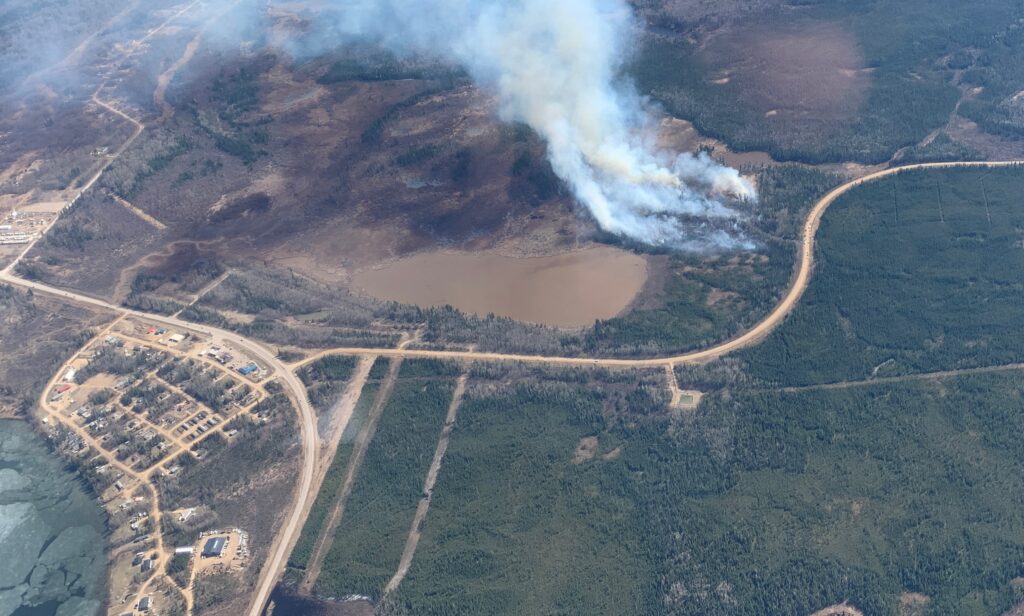Authorities declared a provincial state of emergency on Saturday after Alberta wildfires drove tens of thousands of people from their homes. British Columbia, Quebec, and Ontario deployed firefighters to assist with the operations in various regions.
—
Nearly 30,000 residents throughout western Canada have been ordered to evacuate their homes in response to “unprecedented” wildfires that broke out in the province of Alberta last week.
“Much of Alberta has been experiencing a hot, dry spring and with so much kindling, all it takes is a few sparks to ignite some truly frightening wildfires,” said Premier Danielle Smith, head of the ruling United Conservative Party (UCP) at a press conference. “These conditions have resulted in the unprecedented situation our province is facing today.
On Saturday, the Alberta government declared a provincial state of emergency as more than 100 wildfires spread across around 121,909 hectares (301,243 acres). On Monday, 107 active wildfires were recorded, 29 of which were classified as out of control. Hundreds of firefighters from British Columbia, Quebec, and Ontario have traveled to the affected areas to assist with operations.
Close to 80 wildland firefighters arrived yesterday from Quebec and Ontario and are on their way to areas that need them the most. We’re grateful for the support. Thank you! Merci! pic.twitter.com/YvdhRbWf3Q
— Alberta Wildfire (@AlbertaWildfire) May 7, 2023
Improved weather conditions on Sunday facilitated evacuation operations, according to officials from the Alberta Emergency Management Agency and Alberta Wildfire. Christie Tucker, information unit manager with Alberta Wildfire, said in a press conference in Edmonton that Sunday’s scattered showers in the southern part of the province allowed firefighters to get closer to some wildfires previously deemed out of control.
“When we see that lifting in conditions, a little bit of humidity and coolness, it means that our firefighters can actually get a little closer to areas of the fire that they had not been able to get into before and that can be very big for us,” she said.
Drayton Valley, 140km (87 miles) west of the provincial capital Edmonton, is among the worst-hit areas, with all 7,000 residents evacuated by authorities on Thursday.
Western Canada has been severely impacted by wildfires in recent years as average temperatures keep rising, leading to record heatwaves and exceptionally dry weather conditions. In 2021, a devastating blaze in Lytton, British Columbia, broke out a day after the area endured the hottest temperature ever recorded in Canada, killing two people and destroying the entire town.
With global warming bringing hotter and drier weather, Canadian forests are becoming increasingly vulnerable to wildfires. According to the National Forestry Database, over 8,000 fires occur in the country each year, and burn an average of over 2.1 million hectares (5.2 million acres).
Forest fires result in a decline in plant diversity, damage to trees typically resistant to fires, animal displacement, and more rapid melting of the boreal permafrost, which is associated with the release of a potent planet-warming gas known as methane.
Featured image: Alberta Wildfire/Twitter
You might also like: 5 Pressing Environmental Issues in Canada in 2023


















